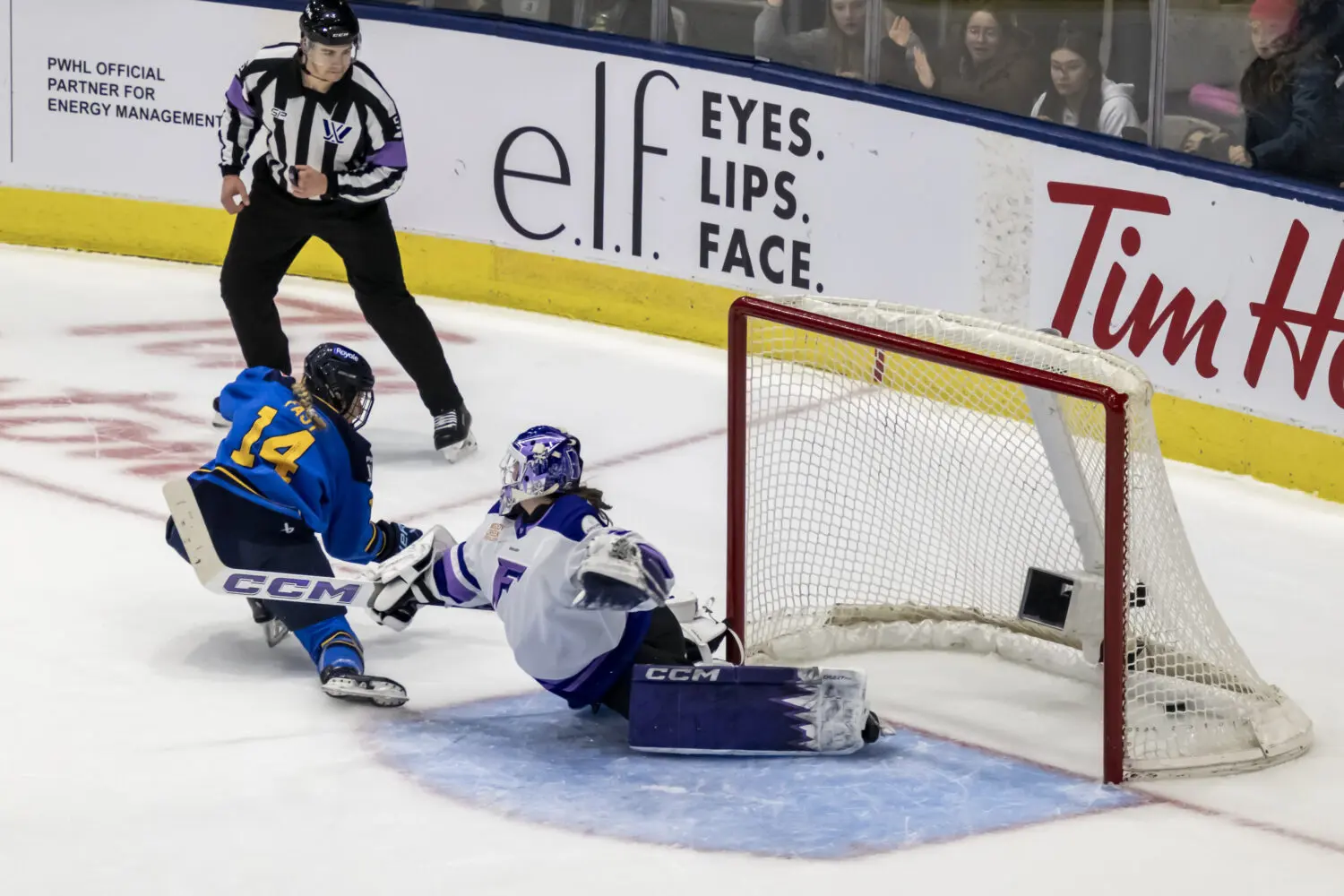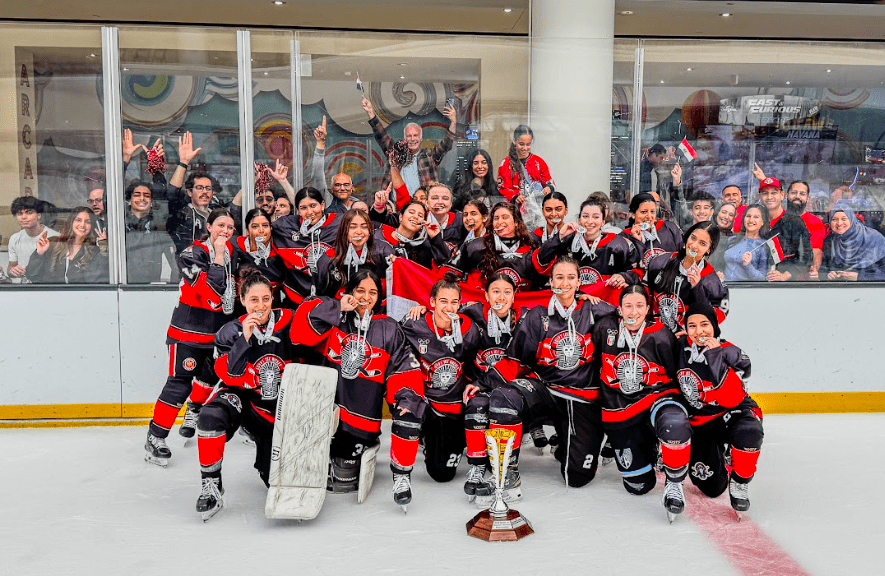
It may not have been the outcome they were hoping for, but South Korea made history at the 2016 Division IIA Women’s World Championships in Bled, Slovenia.
The South Korean women’s hockey team has seen significant improvement since their first appearance in a IIHF World Championship in 2004, when they suffered a 10-1 loss to Slovenia and finished last. Now, 12 years later, Korea has placed the highest they ever have in a IIHF World Championship. At the Division IIA World Championships in early April there was a three-way tie for first between Korea, Poland, and Great Britain; Korea ended up finishing second.
While their goal was to come in first, Korea also made history with their first-ever wins over North Korea and Great Britain. With the 2018 Olympics getting closer and closer, this tournament has helped the team gain confidence – something which was, and will continue to be, one of the keys to the team’s success.
“As a team we struggle with confidence,” said the team’s head coach, Sarah Murray. “In the early years of the program the girls experienced a lot of defeat and it left them a bit scarred. The girls don’t realize how much they have improved since the program started and have the mentality to go into games a bit timid and scared. Even through we didn’t win the tournament those victories over North Korea and Great Britain helped boost the players’ confidence. Now they believe they can do it and are hungrier than ever to win next season.”
The team, which is quite young (13 of the 17 players are between the ages of 15 and 22), opened the tournament with a 4-1 win over North Korea. This was followed by a 1-0 win over Great Britain. The team also beat Croatia 6-0 and Slovenia 3-0, with a 2-1 loss to the eventual tournament champions, Poland, being their only loss.
While the team as a whole had a very strong tournament, there are several players who stood out. Team captain Kyou Sun Lee and Jongah Park led their team in points with six each.
“Kyou Sun Lee had an extremely solid performance throughout the competition,” said Murray. “Not only did she perform well on the ice, but has led the team well throughout the championship and the entire season.” Lee was also named the tournament’s best overall defender.
Park, a forward, demonstrated her versatility and dependability throughout the tournament.
“She is on our first power play and penalty kill units,” Murray said. “She is constantly being asked to step up by our coaching staff, and she delivers.”
The team’s starting goalie, Sojung Shin, had a phenomenal tournament, allowing only three goals against in four games (two of which were shutouts). She finished with an outstanding 96.05 save percentage and 0.75 goals against average. According to Murray, Shin “was crucial to helping [them] set the tone and win those first two games [against North Korea and Great Britain].”
Shin has been working closely with her goalie coach, Rebecca Baker. Baker played for the University of Wisconsin as well as Team USA and currently works for Premier Goaltending in Minnesota. She first joined the South Korean team at the 2015 Division IIA World Championships and has been working with Shin since.
“While Sojung is with her college team, St. Francis Xavier in Nova Scotia, Becca does quite a bit of remote coaching and video review,” said Murray. “Becca joins us for all of our major tournaments and training camps and does intensive goalie sessions with both Sojung and our other goalies.”
The South Korean team also had the top three face-off leaders of the 2016 tournament – Soo Jin Han (81.82%), Susie Jo (72.88%), and Jongah Park (66.67%).
The success and improvement of the Korean team is exciting, especially leading up to the 2018 Olympics. Besides the 2017 Division IIA World Championships (where the goal will likely be to come first and be promoted to Division IB), the team will join high school and middle school boys leagues in Korea in the summer, and likely travel outside of Korea in order to play against strong female competition in preparation for the Olympics.
“Leading up to the Olympics the team will be centralized and hopefully we get the funding to do multiple North American training camps where we can play exhibition games against DI and DIII universities,” said Murray.
Both the women’s and the men’s South Korean hockey teams were granted entry to the 2018 PyeongChang Olympics in 2014. The Korean Ice Hockey Association presented a detailed four-year development plan to the IIHF, and Korean ice hockey players have since been able to experience a range of development and playing opportunities as well as high-end coaching. One of the initial steps made in regards to the women’s program leading up to the 2018 Olympics was the hiring of Sarah Murray as the national team’s head coach.
Murray is from Canada, played college hockey with the University of Minnesota Duluth, and spent two years playing in Switzerland with HC Lugano. While the language barrier has been difficult, Murray is taking Korean lessons this summer and has a player on the team who speaks English fluently and can translate for her. It has, however, been a challenge.
“It is hard as a coach not to be able to talk with every player … One of my dad’s coaching mentalities is he wants to talk to each of his players at least once everyday. I often try to put this theory into practice, but the girls who don’t speak English tend to panic or think they are in trouble.”
Despite the challenges the South Korean women’s hockey program has encountered over the years – from overcoming a timid mentality to language barriers – the players have shown an inspiring determination to improve and love for the game. While the 2018 Olympics will be another major challenge for this team, it will also be another major milestone for the South Korean women’s program, and hopefully a source of inspiration for them to continue to promote and improve women’s hockey in their country.
[adrotate group=”1″]
Related Articles
Categories
Recent Posts
[adrotate group=”2″]




